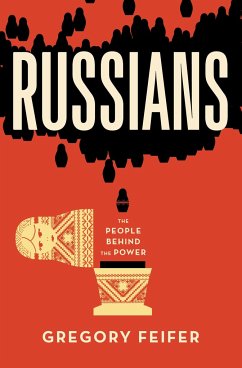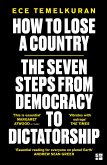From former NPR Moscow correspondent Gregory Feifer comes an incisive portrait that draws on vivid personal stories to portray the forces that have shaped the Russian character for centuries-and continue to do so today.
RUSSIANS explores the seeming paradoxes of life in Russia by unraveling the nature of its people: what is it in their history, their desires, and their conception of themselves that makes them baffling to the West? Using the insights of his decade as a journalist in Russia, Feifer corrects pervasive misconceptions by showing that much of what appears inexplicable about the country is logical when seen from the inside. He gets to the heart of why the world's leading energy producer continues to exasperate many in the international community. And he makes clear why President Vladimir Putin remains popular even as the gap widens between the super-rich and the great majority of poor.
Traversing the world's largest country from the violent North Caucasus to Arctic Siberia, Feifer conducted hundreds of intimate conversations about everything from sex and vodka to Russia's complex relationship with the world. From fabulously wealthy oligarchs to the destitute elderly babushki who beg in Moscow's streets, he tells the story of a society bursting with vitality under a leadership rooted in tradition and often on the edge of collapse despite its authoritarian power.
Feifer also draws on formative experiences in Russia's past and illustrative workings of its culture to shed much-needed light on the purposely hidden functioning of its society before, during, and after communism. Woven throughout is an intimate, first-person account of his family history, from his Russian mother's coming of age among Moscow's bohemian artistic elite to his American father's harrowing vodka-fueled run-ins with the KGB.
What emerges is a rare portrait of a unique land of extremes whose forbidding geography, merciless climate, and crushing corruption has nevertheless produced some of the world's greatest art and some of its most remarkable scientific advances. RUSSIANS is an expertly observed, gripping profile of a people who will continue challenging the West for the foreseeable future.
Hinweis: Dieser Artikel kann nur an eine deutsche Lieferadresse ausgeliefert werden.
RUSSIANS explores the seeming paradoxes of life in Russia by unraveling the nature of its people: what is it in their history, their desires, and their conception of themselves that makes them baffling to the West? Using the insights of his decade as a journalist in Russia, Feifer corrects pervasive misconceptions by showing that much of what appears inexplicable about the country is logical when seen from the inside. He gets to the heart of why the world's leading energy producer continues to exasperate many in the international community. And he makes clear why President Vladimir Putin remains popular even as the gap widens between the super-rich and the great majority of poor.
Traversing the world's largest country from the violent North Caucasus to Arctic Siberia, Feifer conducted hundreds of intimate conversations about everything from sex and vodka to Russia's complex relationship with the world. From fabulously wealthy oligarchs to the destitute elderly babushki who beg in Moscow's streets, he tells the story of a society bursting with vitality under a leadership rooted in tradition and often on the edge of collapse despite its authoritarian power.
Feifer also draws on formative experiences in Russia's past and illustrative workings of its culture to shed much-needed light on the purposely hidden functioning of its society before, during, and after communism. Woven throughout is an intimate, first-person account of his family history, from his Russian mother's coming of age among Moscow's bohemian artistic elite to his American father's harrowing vodka-fueled run-ins with the KGB.
What emerges is a rare portrait of a unique land of extremes whose forbidding geography, merciless climate, and crushing corruption has nevertheless produced some of the world's greatest art and some of its most remarkable scientific advances. RUSSIANS is an expertly observed, gripping profile of a people who will continue challenging the West for the foreseeable future.
Hinweis: Dieser Artikel kann nur an eine deutsche Lieferadresse ausgeliefert werden.








